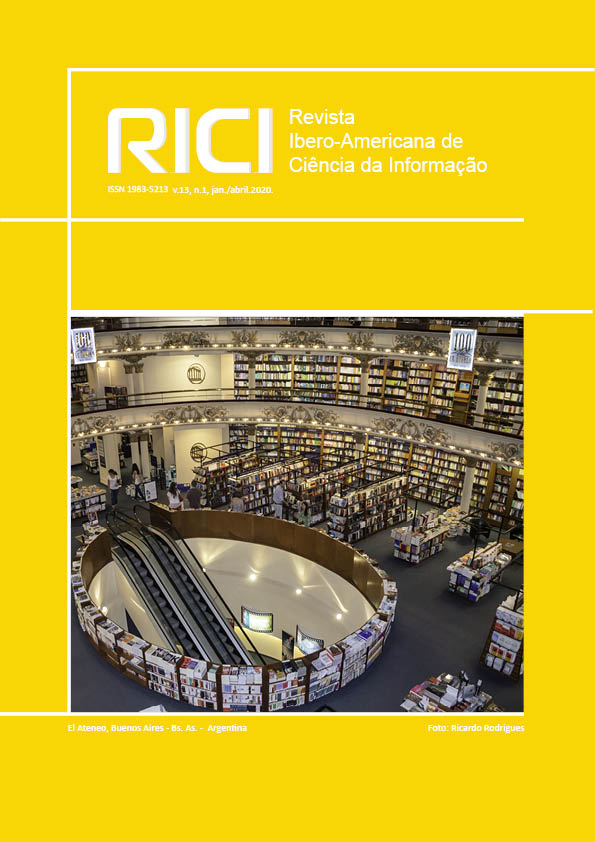The management of information under the optics of complex thought: a reflection
DOI:
https://doi.org/10.26512/rici.v13.n1.2020.23413Keywords:
Information Management. Theory of Complexity. Complex Thinking.Abstract
The contemporary society immersed in a significant amount of information must integrate the most varied organizational and informational contexts in order to generate knowledge with inter, multi, multi and transdisciplinary characteristics. In this scenario, the information and knowledge produced requires the intervention of complex thinking for the proper valuation and effective development of its processes. In order to contribute to add value to informational processes, the following problem arises: Is it possible to add value to traditional information management practices, through the principles of complex thinking? The aim is to discuss the management of information in line with the view of complex thinking. The justification for the development of such research lies in contributing to the theoretical framework of Information Science which, in turn, studies information management in the most varied organizational contexts. In order to do so, a literature review was carried out, in which it was possible to verify which aspects of the complex thinking can help in the breaking of paradigms that inhabit the traditional practices coming from different models of information management.
Downloads
Downloads
Published
How to Cite
Issue
Section
License
Copyright (c) 2020 Beatriz Rosa Pinheiro dos Santos, Marta Lígia Pomim Valentim, Ieda Pelógia Martins Damian

This work is licensed under a Creative Commons Attribution 4.0 International License.
Copyright Notice
Authors who publish in this journal agree to the following terms:
- Authors retain copyright and grant the journal right of first publication with the work simultaneously licensed under the Creative Commons Attribution License 4.0, allowing the sharing of work and recognition of the work of authorship and initial publication in this journal.
- Authors are able to take on additional contracts separately, non-exclusive distribution of the version of the paper published in this journal (ex.: distribute to an institutional repository or publish as a book), with an acknowledgment of its initial publication in this journal.
- Authors are permitted and encouraged to distribute their work online (eg.: in institutional repositories or on their website) at any point before or during the editorial process, as it can lead to productive exchanges, as well as increase the impact and citation the published work.
















